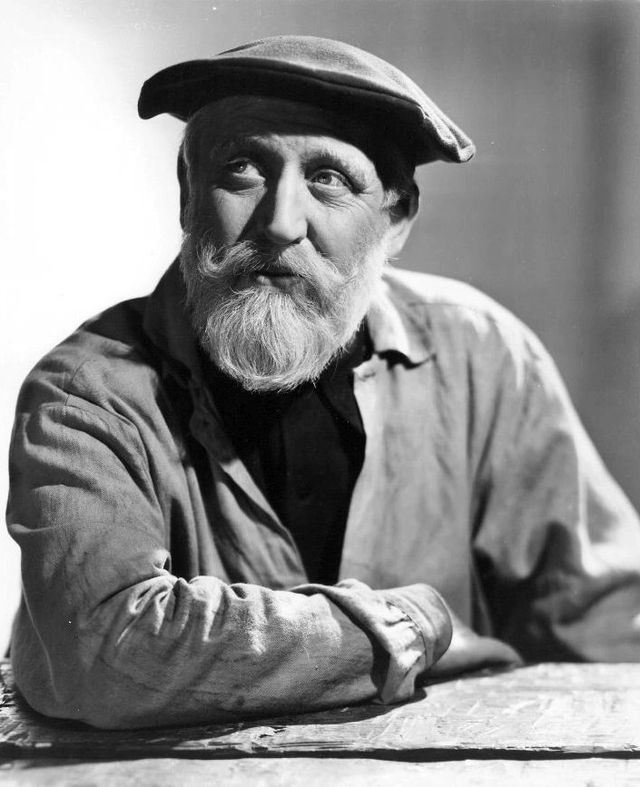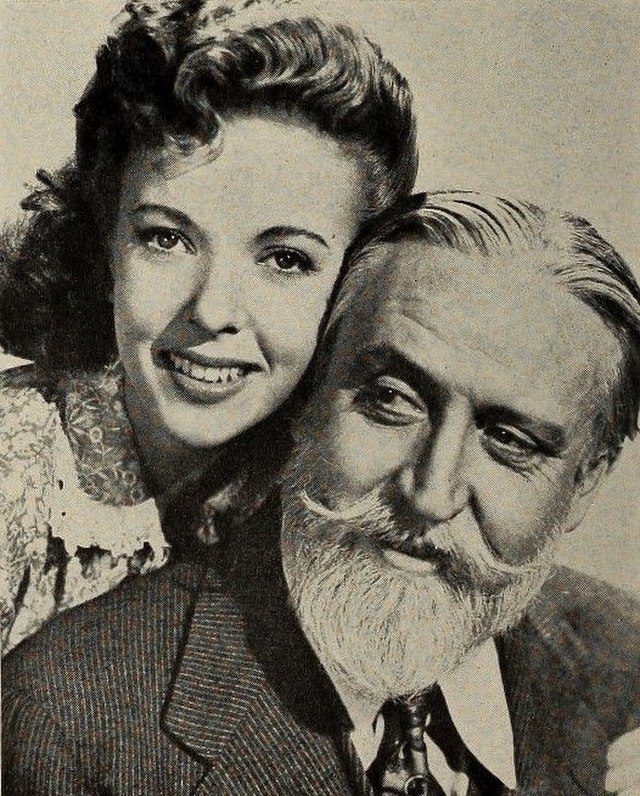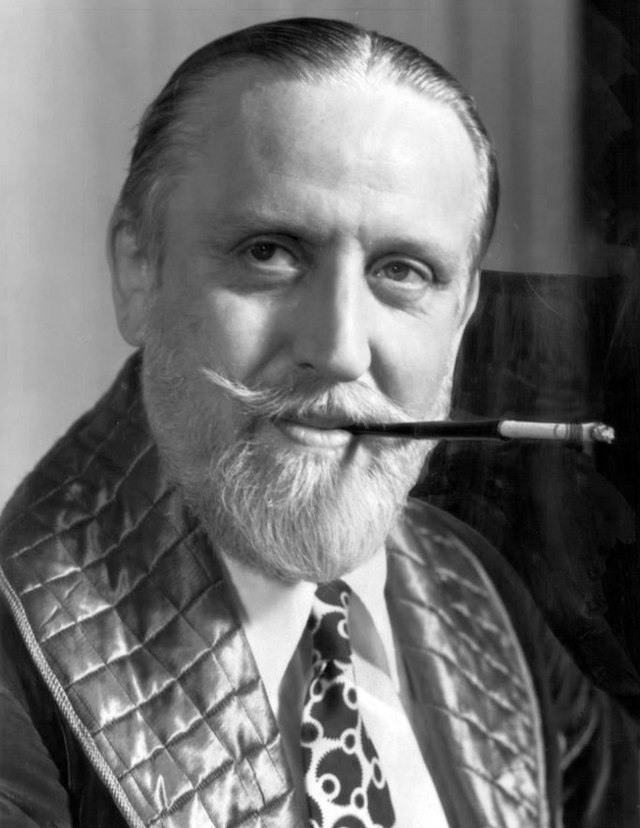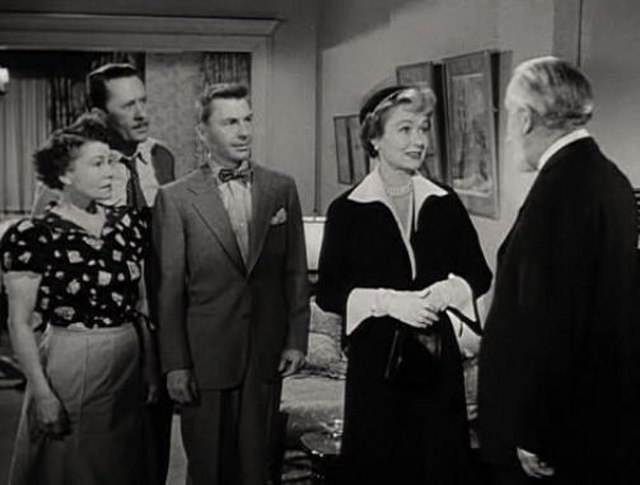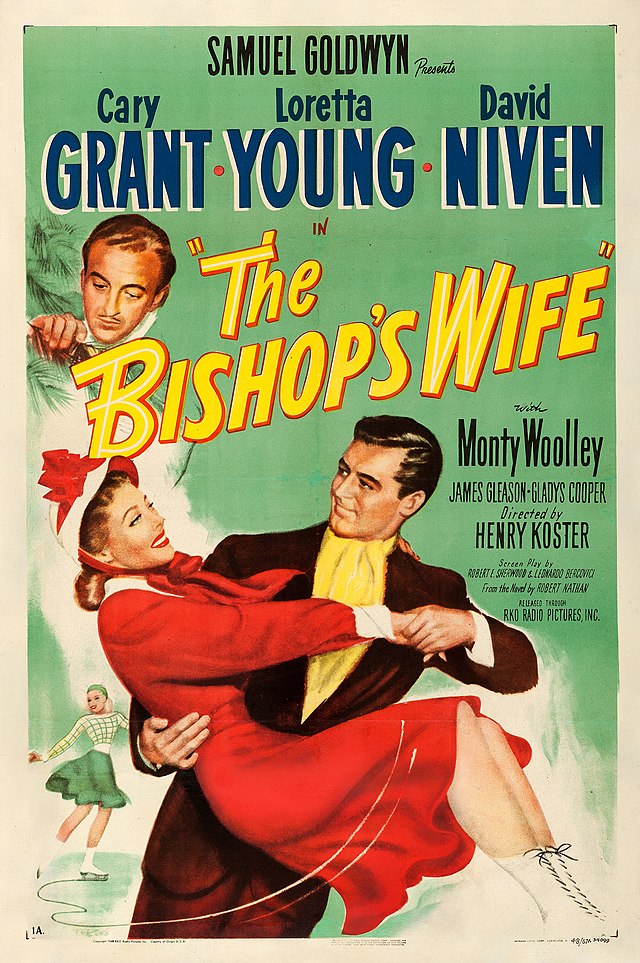Monty Woolley
back| Full Name | Edgar Montillion Woolley |
| Stage Name | Monty Woolley |
| Born | August 17, 1888 |
| Birthplace | New York City, New York, USA |
| Died | May 6, 1963 |
| Buried | Greenridge Cemetery, Saratoga Springs, New York, USA |
| Married to | Never married. Woolley was openly gay. |
| Children | None |
| Notable films | The Man Who Came to Dinner (1942) - Since You Went Away (1944) - The Bishop's Wife (1947) |
Monty Woolley
“The Beard” from Hollywood
Monty Woolley was known for his wit, booming voice, and distinctive white beard. Before becoming a film actor, he was a stage actor and also a professor at Yale University, where he taught French and English literature.
His career in Hollywood began relatively late, in his 50s, but his sharp comedic style made him a memorable presence in both drama and comedy films. Woolley became a cultural icon thanks to his role in The Man Who Came to Dinner, which he performed both on Broadway and in the film adaptation.
Related
Monty Woolley (1888 – 1963)
Biography and Movie Career
Monty Woolley was born Edgar Montillion Woolley on August 17, 1888, in New York City, into a prominent family with strong social ties. His father, William Edgar Woolley, was a well-known hotelier, and his mother, Jessie née Arms, was a well-educated woman who played an influential role in shaping his early intellectual development. Woolley grew up in an environment that fostered his love for literature, art, and culture, and this intellectual upbringing became a cornerstone of his personality and career.
He attended the prestigious Yale University, where he developed a lifelong friendship with Cole Porter, a relationship that would later influence his career in entertainment. After Yale, Woolley studied at Harvard University and eventually spent time in Europe, polishing his linguistic abilities and intellectual pursuits.
Woolley was also an academic in his early life. He worked as a professor at Yale, teaching French and English literature, where he became well known for his authoritative presence in the classroom. His experience at Yale further strengthened his already cultivated tastes in art, drama, and the social graces of the upper class. However, his passion for the performing arts was undeniable, and it eventually led him away from academia and into the entertainment world.
Career and Path to Success
Woolley's theatrical career began in the 1920s, though he started out working behind the scenes in Broadway productions as a director and stage manager. His first stage appearance was relatively late, in 1936, but it wasn’t long before his striking looks, distinctive voice, and sharp wit drew attention. His gruff yet witty demeanor and signature white beard made him a memorable presence on the stage.
It was his performance as the lead in The Man Who Came to Dinner (1939), both on Broadway and in its 1942 film adaptation, that cemented his stardom. The role of Sheridan Whiteside, a flamboyant and cantankerous critic, suited Woolley's real-life personality, and his performance was lauded for its biting humor and impeccable timing. This role is perhaps the most iconic of his career and allowed him to transition into Hollywood, where he became a popular character actor in the 1940s.
Woolley’s film career included a string of notable roles, often playing eccentric, aristocratic, or academic characters. His most famous films include Since You Went Away (1944), for which he received an Academy Award nomination for Best Supporting Actor, and Holy Matrimony (1943). His portrayal of Colonel Smollett in Since You Went Away was a departure from his typical comedic roles, showcasing his versatility as an actor.
In 1946, Woolley appeared in Night and Day, a biopic about Cole Porter, where he played himself. His long friendship with Porter gave him a unique perspective on the part, and the film became a testament to their lifelong connection. He also starred in The Bishop’s Wife (1947), a holiday classic where he played the kindly but befuddled Professor Wutheridge.
Personal Life
Monty Woolley’s personal life was intriguing yet private in many ways. He never married, and though he was openly gay among close friends and colleagues, his sexuality was not publicly discussed during his lifetime due to the societal norms of the period. Woolley lived in a time when Hollywood and society at large were not accepting of openly gay actors, so he maintained a certain level of discretion regarding his relationships. Despite this, he moved in circles where he was surrounded by artists, intellectuals, and theater people who accepted him fully.
His close friendship with Cole Porter was one of the defining relationships of his life, both personally and professionally. Woolley and Porter, both Yale graduates and prominent figures in the arts, shared a deep mutual respect. Woolley’s circle of friends also included notable personalities from the theater world, literary figures, and Hollywood stars.
In addition to his acting career, Woolley was known for his wit and sharp intellect. He was an avid reader and had a deep interest in classical music, opera, and literature. His erudite charm made him a fixture at high-society gatherings in New York, and he was considered one of the wittiest men of his time.
Later Years and Death
As the 1950s progressed, Woolley’s health began to decline, and his acting appearances became less frequent. He had been battling arthritis for many years, which caused him significant pain and limited his mobility. Despite his declining health, Woolley maintained his sharp humor and continued to be beloved in Hollywood and theater circles. He spent his later years living quietly, and though his on-screen appearances were fewer, he remained an admired figure.
Monty Woolley passed away on May 6, 1963, at the age of 74. The cause of death was complications related to kidney and heart ailments. His death marked the end of an era for Hollywood character actors who brought sophistication and wit to their roles. Woolley was buried in Greenridge Cemetery in Saratoga Springs, New York, where he had spent much time in his later years.
Legacy
Monty Woolley is remembered as one of the great character actors of Hollywood’s Golden Age, a performer who brought intelligence, wit, and a touch of aristocratic flair to his roles. His portrayal of sharp-tongued, intellectual characters reflected his own personality—erudite, sophisticated, and full of sardonic charm. Though his career peaked in the 1940s, his performances, particularly in The Man Who Came to Dinner, remain classics. Woolley’s unique blend of humor and gravitas made him a beloved figure both on stage and screen, and his contributions to the world of entertainment continue to be celebrated.
Monty Woolley on the TV Show The Name's The Same
Commanding Acting Style of Monty Woolley
Monty Woolley’s acting style was distinctive, marked by a sharp blend of wit, gravitas, and a slightly aristocratic air that made him a unique presence on both stage and screen. His approach to acting was heavily influenced by his own personality—intellectual, sharp-tongued, and confident—qualities that he brought to his most famous roles.
Commanding Presence and Voice
Woolley possessed a deep, resonant voice that made him instantly recognizable. His clear diction and authoritative tone conveyed a sense of superiority and wisdom, traits that were particularly well-suited to the often-elitist, curmudgeonly characters he portrayed. His voice could be both booming and biting, often delivering lines with an undercurrent of sarcasm that added depth to his performances.
His physical presence, enhanced by his signature white beard and distinguished demeanor, contributed to this effect. Woolley had a way of taking command of any scene he was in, often appearing larger-than-life. Whether playing an irascible intellectual or a weary old professor, he knew how to dominate the screen or stage without needing to move much or shout. His controlled and deliberate movements often complemented his powerful vocal delivery, creating a sense of effortless authority.
Master of Wit and Sarcasm
Woolley was known for his sharp, sardonic humor, which became a hallmark of his acting style. His comedic timing was impeccable, and he had a talent for delivering biting, barbed comments with an air of aristocratic detachment. This ability to deliver acidic wit with a sense of refined superiority made him particularly effective in roles like Sheridan Whiteside in The Man Who Came to Dinner.
Woolley’s characters often seemed to be above the fray, intellectually superior to those around them, and he played this to great effect. His sarcasm never felt forced or over-the-top but rather flowed naturally from his character's sense of exasperation or disdain for those less clever. This lent his performances a sophistication that resonated with audiences, particularly in high-society or intellectual roles.
Theatricality with a Touch of Restraint
Having come from the world of theater, Woolley’s acting style retained a certain theatrical flair even in his film roles. He was capable of delivering grand, exaggerated expressions when needed, but unlike many stage actors who struggled to adapt to the more subtle demands of film acting, Woolley knew when to pull back. His performances never felt too broad for the screen, as he struck a balance between theatricality and naturalism. This allowed him to convey both the larger-than-life qualities of his characters and the more intimate, human moments.
In roles like Colonel William G. Smollett in Since You Went Away, Woolley was able to demonstrate the nuances of a rigid, militaristic character while also showing his vulnerability and eventual emotional softening. His ability to restrain his theatrical instincts and reveal deeper layers of emotion without losing his dignified bearing was a testament to his skill as an actor.
Eccentricity and Affectionate Curmudgeonliness
Woolley often portrayed eccentric characters who were set in their ways, with rigid worldviews that led to humorous or poignant clashes with the people around them. His characters were frequently grumpy or cantankerous, but Woolley had a unique way of making these traits endearing rather than off-putting. He brought a sense of humanity to his roles, even when playing characters who were pompous or overbearing.
In films like Holy Matrimony and Molly and Me, Woolley played older, eccentric men who could easily have been mere caricatures of grumpy aristocrats or self-important intellectuals. However, his ability to inject warmth, subtle vulnerability, and even affection into these roles made his characters memorable and lovable. Audiences could sense the heart beneath the bluster, which allowed them to connect with his otherwise irritable or demanding characters.
Versatility Across Genres
While Woolley was most famous for his comedic roles, particularly those that required a sharp tongue and quick wit, he also demonstrated versatility across genres. He was equally adept at playing serious, dramatic roles, as seen in Since You Went Away, where he played a gruff, emotionally distant colonel who gradually opens up. His transition between comedy and drama was seamless, largely because he retained his essential characteristics—intelligence, authority, and presence—while adapting them to fit the tone of the film.
In his dramatic roles, Woolley softened his sharpness, allowing more vulnerable or introspective sides of his characters to emerge. He was able to project a quiet dignity and grace that contrasted with the biting humor of his comedic performances. This range made Woolley a more dynamic and layered actor, capable of moving audiences to both laughter and tears.
A Natural Fit for “Character Actor” Roles
Woolley was the quintessential character actor, someone who could take a supporting role and elevate it to be unforgettable. His ability to portray larger-than-life personas with complex inner worlds made him a favorite in Hollywood’s Golden Age. He rarely played the romantic lead or the hero but instead specialized in roles that required a memorable, standout performance. His characters often had strong personalities, with quirks that allowed him to play off the lead actors in comedic or dramatic ways.
His career was built on the kind of roles that offered rich opportunities for a seasoned actor to display their full range of talent. He wasn't a chameleon who disappeared into his roles but rather someone whose personal charm and wit were always present, shaping each character he played.
Quotes from Monty Woolley
Monty Woolley was known for his sharp wit both on and off the screen, and many of his characters delivered memorable, biting lines. Here are some memorable quotes attributed to him, both from his roles and personal life:
Quotes from Monty Woolley in Films:
"The Man Who Came to Dinner" (1942) as Sheridan Whiteside:
“I may vomit.”
This line became one of Woolley’s most famous. It perfectly encapsulates the irritable, over-the-top, and haughty demeanor of Sheridan Whiteside, a character who delights in cutting people down with his sharp tongue.
"My great aunt Jennifer ate a whole box of candy every day of her life. She lived to be 102, and when she'd been dead three days, she looked better than you do now." Another iconic line from The Man Who Came to Dinner, demonstrating the kind of acerbic wit Woolley was famous for.
"I simply will not sit down to dinner with midwestern barbarians, I'll be dead by morning!" This line reflects Sheridan Whiteside’s utter disdain for anyone he deems beneath him—a typical display of Woolley’s style of sophisticated, highbrow humor.
"Since You Went Away" (1944) as Colonel William G. Smollett:
“Get rid of the soft heart! It's no asset to an officer.”
This line captures the strict, no-nonsense attitude of Woolley’s character, Colonel Smollett, as he tries to maintain an air of military discipline.
"Holy Matrimony" (1943) as Priam Farll:
“You may take it for granted that I am capable of appreciating beauty, but I also have a soul, which rises above mere externals.”
This quote from Holy Matrimony reflects the more introspective side of Woolley’s acting. It’s delivered with his characteristic dignity, revealing a more complex interior beneath his often-gruff exterior.
"The Bishop's Wife" (1947) as Professor Wutheridge:
“It is difficult to save the world when you can't pay your rent.”
Woolley’s Professor Wutheridge delivers this line with a tone of resignation and wisdom, reflecting the film’s themes of faith, human limitations, and hope.
Personal Quotes and Quips:
On his acting career:
“I never thought I'd spend my life in knickers and a beard, shouting insults at Gary Cooper.” This was Woolley’s witty reflection on the often-eccentric roles he found himself playing. It highlights his self-awareness and his sense of humor about his own image as an actor.
On Hollywood:
“Hollywood is a place where people from Iowa mistake each other for stars.” Woolley was known for his cutting commentary on the Hollywood system, and this quip reflects his sardonic view of the industry's fascination with fame.
On his theatrical style:
“I was born with a valuable gift: the ability to express disdain.” Woolley was fully aware of his unique talent for portraying characters with an air of superiority and scorn. This line is a perfect summation of his acting persona.
Regarding fame:
"I've been around so long, I knew Doris Day before she was a virgin." This is a classic Woolley quip, filled with humor and a dash of irreverence, poking fun at Hollywood's obsession with image and purity, especially during the era of Doris Day's popularity.
What Others said about Monty Woolley
Monty Woolley was widely admired for his sharp wit, intelligence, and unique style, both on screen and off. Here’s what others—colleagues, critics, and industry figures—had to say about him:
Cole Porter (Composer and lifelong friend):
Cole Porter and Monty Woolley were close friends from their time at Yale, and Porter admired Woolley’s quick wit and larger-than-life personality. Porter once remarked:
- “Monty had a sense of style and wit that matched no other. He was as sharp in conversation as he was on stage.” Their friendship was reflected in Night and Day (1946), where Woolley played himself, and Porter’s biographer noted that Porter always admired Woolley’s ability to both command attention and make light of himself.
Bette Davis (Co-star in The Man Who Came to Dinner):
Bette Davis, who worked with Woolley in The Man Who Came to Dinner, had a deep respect for him as an actor. She once said:
- “Monty Woolley had a gift. He could take any line and make it sound both hilarious and deeply cutting at the same time. He brought a richness to The Man Who Came to Dinner that few actors could have.” Davis appreciated Woolley’s wit, noting how he could seamlessly move between being charming and sharp-tongued, which made him the perfect fit for the role of Sheridan Whiteside.
James Agee (Film Critic for Time and The Nation):
James Agee, one of the most influential critics of his time, praised Woolley for his unique screen presence:
- “Woolley brought with him an intellectual sharpness and a droll humor that set him apart from other character actors of his generation. He could be aristocratic without pretension, and curmudgeonly without losing the audience’s affection.” Agee admired how Woolley could play roles with a biting, sarcastic edge, yet still evoke sympathy and charm.
David Niven (Actor and Co-star in The Bishop’s Wife):
David Niven, who worked with Woolley in The Bishop’s Wife, once reflected:
- “Monty was a true gentleman off screen, but an absolute delight to watch when he transformed into his characters. He had this uncanny ability to deliver lines with both warmth and razor-sharp precision. You couldn’t help but be captivated by him.” Niven valued Woolley’s mix of refinement and sardonic humor, which made him both a formidable actor and a joy to work with.
Clifton Webb (Actor and Contemporary):
Clifton Webb, another actor known for his sharp, often sophisticated roles, once commented on Woolley’s acting style:
- “Monty and I were often compared, but what set him apart was the kindness underneath the sarcasm. He could tear you down with a line and then make you love him by the next. It was a rare talent.” Webb admired Woolley’s ability to play sharp, disdainful characters but still leave the audience with an affectionate view of him by the end of a scene.
Brooks Atkinson (Drama Critic for The New York Times):
In his review of The Man Who Came to Dinner, Atkinson wrote:
- “Monty Woolley’s Sheridan Whiteside is a creation of pure genius. He embodies the waspish, quick-witted character so completely that you can’t imagine anyone else doing it justice. His performance is a masterclass in delivering comedy with an edge of truth.” Atkinson’s review reflected the critical consensus at the time: Woolley was a master of the acerbic, sharp-tongued intellectual, bringing layers to characters that could have been one-dimensional in lesser hands.
John Ford (Director):
Director John Ford once commented on Woolley’s strength as a character actor:
- “Monty Woolley knew exactly how to steal a scene without overpowering it. His style was so refined, so perfectly calibrated, that he left an indelible mark on every film he was in.” Ford admired Woolley’s ability to draw attention without overshadowing his co-stars—a rare skill for any actor.
Frances Goodrich (Playwright and Screenwriter):
Frances Goodrich, who co-wrote The Man Who Came to Dinner, said:
- “We wrote Sheridan Whiteside for Monty. He was Whiteside, through and through. He had that same larger-than-life personality, that same ability to throw insults with a smile.” This statement underscored the fact that Woolley didn’t just play the role of Sheridan Whiteside; he embodied it so fully that the character became synonymous with him.
Bosley Crowther (Film Critic for The New York Times):
Bosley Crowther, reviewing Since You Went Away, said:
- “Monty Woolley’s performance as the crusty Colonel Smollett in Since You Went Away is one of his finest. He gives the character a sense of dignity and complexity, balancing a tough exterior with underlying sensitivity.” Crowther appreciated Woolley’s range, especially in more dramatic roles where he brought emotional nuance to characters that might have appeared one-note.
Awards and Recognition
Academy Award Nominations
- 1945 – Academy Award for Best Supporting Actor
Nominated for his role as Colonel William G. Smollett in Since You Went Away (1944).
Woolley’s portrayal of the gruff, emotionally distant colonel in this World War II drama earned him critical acclaim and one of the highest honors in Hollywood. His performance was praised for its depth and subtle evolution as his character softens over the course of the film. This remains Woolley’s most significant film-related recognition.
Golden Globe Award Nominations
- 1945 – Golden Globe Award for Best Supporting Actor – Motion Picture
Nominated for his role in Since You Went Away (1944).
Woolley received this nomination alongside his Academy Award nomination for the same performance, marking him as one of the standout supporting actors of that year. The Golden Globes, like the Oscars, recognized his ability to balance humor and drama in a challenging role.
Theatrical Recognition
While Monty Woolley’s film work is what brought him the most visibility, his career began in the theater, and his work on Broadway was widely respected. Though he did not receive specific awards during his time on stage, his performance in the original Broadway production of The Man Who Came to Dinner (1939) was universally praised. His portrayal of the irascible Sheridan Whiteside was iconic and is often considered one of his career-defining roles. The critical and audience recognition from this role helped establish his Hollywood career and remains a cornerstone of his legacy in the theater world.
Honors and Cultural Impact
- Broadway Success – The Man Who Came to Dinner (1939):
While Woolley may not have received formal awards for his stage work, his performance as Sheridan Whiteside in The Man Who Came to Dinner on Broadway and later in the film adaptation (1942) was considered one of the finest comedic performances of his time. His success in this role made him a household name and is still fondly remembered as one of the great stage-to-screen performances in American theater history. - Cultural Icon Status:
Woolley’s sharp wit and distinctive screen presence made him a beloved figure among audiences and critics alike. His signature style—marked by his booming voice, aristocratic demeanor, and white beard—made him an instantly recognizable figure. Woolley’s persona was so iconic that he even played himself in Night and Day (1946), a film about the life of his close friend Cole Porter. - Hollywood Walk of Fame:
Though Woolley does not have a star on the Hollywood Walk of Fame, his legacy as a celebrated character actor and his contribution to Hollywood’s Golden Age earned him a lasting place in the history of cinema.
Legacy and Posthumous Recognition
Though Monty Woolley may not have garnered a vast number of awards during his lifetime, his legacy as one of the great character actors of the 1940s and 1950s continues to be celebrated. His role in The Man Who Came to Dinner is often revived on stage, and his films, especially Since You Went Away and The Bishop’s Wife, are still appreciated by classic film enthusiasts.
His work continues to be cited as an example of the "character actor" tradition in Hollywood—a type of actor who may not be a conventional leading man but whose performances elevate every project they are involved in. His impact on theater and film, particularly in comedic and aristocratic roles, remains a benchmark for actors in similar roles today.
Summary of Awards and Recognition
- Academy Award Nomination for Best Supporting Actor (1945) – Since You Went Away
- Golden Globe Nomination for Best Supporting Actor – Motion Picture (1945) – Since You Went Away
- Theatrical acclaim for his performance in The Man Who Came to Dinner (1939) on Broadway
Movies Starring Monty Woolley
1937
- Live, Love and Learn: A comedy about a struggling artist who marries into high society, only to find that love and art may not mix well. Woolley played a small supporting role as Professor Gibbs.
1938
- The Girl of the Golden West: Set during the California Gold Rush, this musical features Woolley in a minor role. The film is a romance between a saloon owner and a notorious outlaw.
- Lord Jeff: A drama about a group of boys in a maritime training school. Woolley played Captain Briggs, one of the instructors. The story revolves around a young delinquent who finds redemption through discipline.
1939
- Man About Town: A musical comedy featuring Jack Benny as a talent scout, with Woolley in a minor role. The film focuses on the romantic misadventures of a Broadway producer.
- Everybody's Baby: A family comedy centered around the chaotic lives of a newlywed couple. Woolley played Dr. Millicent Brace, a small role in the ensemble cast.
1941
- The Man Who Came to Dinner: Woolley plays Sheridan Whiteside, an irascible critic who, after slipping on ice outside a suburban family’s home, monopolizes their lives with his outrageous demands and witticisms. This is Woolley’s signature role, and it cemented his Hollywood stardom.
1942
- Life Begins at Eight-Thirty: Woolley portrays John Bentley, a once-great actor now reduced to alcoholism, who tries to reconnect with his daughter. It’s a heartwarming film about redemption and familial love.
- The Pied Piper: Woolley played Mr. Howard, a man caught in Nazi-occupied France who takes on the responsibility of escorting several children to safety. This war drama was well-received and showcased Woolley’s serious acting chops.
1943
- Holy Matrimony: Woolley stars as Priam Farll, a famous artist who swaps identities with his dead valet. The mix-up leads to a comedy of errors as he attempts to live a normal life under his servant’s name.
- Young and Willing: A light-hearted comedy about aspiring actors trying to make it big in New York City. Woolley played the role of Albert J. Dobson, a professor aiding the young artists.
- Follies Girl: In this romantic musical comedy, Woolley takes a supporting role. The film centers on the life of a Ziegfeld Follies star and her romantic entanglements.
1944
- Since You Went Away: A World War II-era drama in which Woolley plays Colonel William G. Smollett, a rigid and emotionally distant man who comes to live with a family coping with the father’s absence during the war. His performance earned him an Academy Award nomination for Best Supporting Actor.
- Casanova Brown: A romantic comedy about a man who discovers that his ex-wife has just had a baby and plans to adopt it out. Woolley plays Dr. Ferris, a humorous yet stern character caught in the chaos.
1945
- Molly and Me: A comedy in which Woolley portrays John Graham, a retired actor who hires a quirky housekeeper, leading to a series of charming misadventures.
- Come to the Stable: This film is about two nuns trying to build a children’s hospital. Woolley’s role, though small, adds a touch of humor to the religious drama.
1946
- Night and Day: A biographical film about the life of composer Cole Porter. Woolley plays himself, reflecting his real-life friendship with Porter. The film features many of Porter’s famous songs, and Woolley’s presence lends authenticity to the biopic.
- Irish Eyes Are Smiling: A musical biopic about the life of composer Ernest R. Ball. Woolley plays William Jerome, one of Ball’s collaborators. The film is filled with popular Irish songs and showcases Woolley’s knack for delivering witty lines.
1947
- The Bishop’s Wife: In this beloved holiday classic, Woolley portrays Professor Wutheridge, a kind but weary scholar who befriends an angel sent to help a troubled bishop. Woolley’s character adds warmth and wisdom to the ensemble cast.
- As Young as You Feel: A comedy about an older man who, after being forced into retirement, reinvents himself and shows his former company what they’re missing. Woolley plays Louis McKinley, a key figure in the protagonist’s journey to regain his youth.
1948
- Miss Tatlock's Millions: A comedy about a man hired to impersonate a deceased heir. Woolley plays Miles Tatlock, the family’s eccentric lawyer who orchestrates the elaborate ruse.
1949
- The Stratton Story: This biographical sports drama tells the story of Monty Stratton, a major league pitcher who loses his leg in a hunting accident. Woolley played Barney Wile, Stratton’s crusty but compassionate mentor. The film was a major success.
- The Monty Woolley Show (TV Special): Woolley hosted this television variety show, where his charm and wit were put on full display as he interviewed guests and performed skits. It allowed him to reach a new medium in his later career.
1950
- Kiss Tomorrow Goodbye: A noir film starring James Cagney as a ruthless criminal. Woolley had a smaller role as a district attorney determined to bring Cagney’s character to justice. The film was well-regarded for its gritty tone.
1951
- As Young as You Feel: In this satire of corporate America, Woolley plays a small but important role as Louis McKinley, providing comic relief with his droll, no-nonsense character.
1955
- Kismet (Uncredited): Woolley had a minor uncredited role in this musical fantasy set in the ancient Baghdad marketplace. Though his appearance was brief, his presence added gravitas to the larger-than-life setting.

